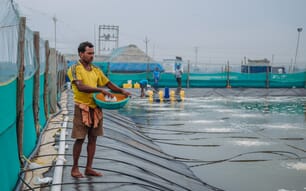
© University of Stirling
The new project, which will be led by researchers at Stirling University’s Institute of Aquaculture, is set to build on a previous study which culminated in the development of a novel vaccine which gives catfish up to 70 percent protection against two major infectious bacterial species - Edwardsiella ictaluri and Aeromonas hydrophila.
With this latest injection of funding, which comes from Canada’s International Development Research Centre and the UK Department of Health and Social Care, the research team seeks to progress towards the commercial development of the new vaccine. The researchers also hope to encourage uptake amongst aquaculture farmers in Vietnam, ultimately reducing rampant antibiotic use which leads to rapid antimicrobial resistance within freshwater farming systems.
The urgency for increased vaccine usage within the Vietnamese catfish farming industry is clear, with previous research suggesting that as much as 80 percent of farmers lack a proper therapeutic approach to treatment, instead opting to treat bacterial infections using cocktails of antibiotics. This approach is not only inefficient regarding farm resources, but also creates an opportune environment for the development of antimicrobial resistance amongst infectious bacteria.
Although a commercial vaccine against bacterial diseases in catfish has been available since 2013, farmers in Vietnam appear reluctant to use this product.
“Vaccine hesitancy in the Vietnamese Pangasius catfish sector remains high and combined with poor antibiotic stewardship, the sector has reached an AMR crisis. The novelty of this project, is not only the new immersion-based vaccine, but the integration of behavioural sciences to directly address vaccine hesitancy and promote vaccination strategies to reduce the threat of AMR,” said Professor Margaret Crumlish, a lead researcher on the project, in a press release.
To address vaccine hesitancy, Professor Ronan O’Carroll, a psychologist based in Stirling’s Faculty of Natural Sciences, and economist Professor David Comerford, of Stirling Management School, integrated psychology and behavioural economics to identify the barriers and catalysts around vaccine hesitancy in the Vietnamese fish farming sector. They found a multitude of reasons as to why farmers chose not to effectively vaccinate their fish – including a lack of trust in the vaccine, concerns about future use, inconvenience and cost.




